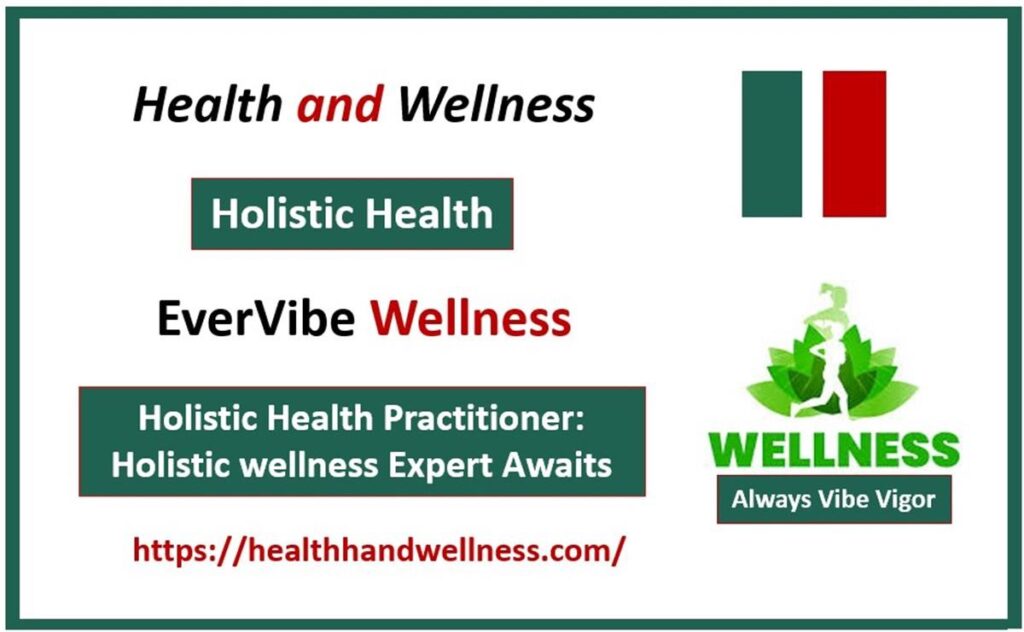A Holistic Health Practitioner (HHP) focuses on improving overall well-being by addressing the mind, body, and spirit through natural therapies and wellness practices. This guide explores the role, skills, educational requirements, and career opportunities for aspiring HHPs.
Introduction
In today’s fast-paced world, more people are turning to holistic approaches to health and wellness. Holistic health emphasizes treating the whole person rather than focusing solely on symptoms. At the heart of this movement is the Holistic Health Practitioner (HHP)
a professional dedicated to promoting balanced, natural well-being. This article delves into what it means to be an HHP, the skills and education required, and how to start and thrive in this rewarding field.
What Is a Holistic Health Practitioner?
A Holistic Health Practitioner is a trained professional who uses natural and integrative therapies to help individuals achieve optimal health. Unlike conventional medical practitioners, HHPs focus on the root cause of health issues, considering physical, emotional, mental, and spiritual factors.
Common practices include nutrition counseling, herbal medicine, energy healing, mindfulness, and physical therapies like yoga or acupuncture. HHPs often collaborate with other healthcare providers to create personalized treatment plans tailored to their clients’ unique needs.

Key Skills and Qualities of a Successful HHP
To succeed as an HHP, certain skills and qualities are essential:
- Empathy and Active Listening
Building trust and understanding clients’ needs are crucial for effective holistic care. - Strong Communication Skills
Educating clients about wellness practices and explaining treatment plans clearly is vital. - Knowledge of Holistic Therapies
A deep understanding of multiple therapies, such as herbal remedies, acupuncture, or energy healing, is important. - Adaptability
Each client is unique, so being flexible and tailoring treatments to individual needs is critical. - Continuous Learning
The field of holistic health evolves constantly, requiring practitioners to stay updated with the latest research and practices.
Educational Pathways to Becoming an HHP
While specific requirements vary depending on location and specialization, aspiring HHPs typically follow these steps:
- Complete a High School Education
A strong foundation in biology, psychology, and health sciences is beneficial. - Pursue Relevant Training or Certification
Enroll in accredited programs focusing on holistic health, naturopathy, or specific therapies such as aromatherapy or massage therapy. Certifications like Certified Holistic Health Practitioner (CHHP) add credibility. - Gain Hands-On Experience
Internships or apprenticeships under experienced practitioners provide practical exposure. - Consider Higher Education
Degrees in naturopathy, nutrition, or complementary medicine can broaden career prospects. - Obtain Licenses (if required)
Some states or countries require licenses for certain practices like acupuncture or massage therapy.
Types of Holistic Therapies Practiced
Holistic Health Practitioners may specialize in one or more of the following therapies:
- Acupuncture: Balancing energy flow through needles.
- Herbal Medicine: Using plants for healing.
- Massage Therapy: Relieving stress and promoting physical relaxation.
- Nutrition Counseling: Creating personalized diets for health improvement.
- Mindfulness and Meditation: Encouraging mental clarity and emotional balance.
- Reiki or Energy Healing: Restoring energy flow and reducing stress.
Steps to Start a Career as a Holistic Health Practitioner
- Research Your Niche
Determine which area of holistic health resonates most with you. - Enroll in Accredited Programs
Choose reputable training institutions that align with your chosen specialty. - Build Your Credentials
Obtain certifications or licenses where required. - Start Networking
Join holistic health organizations or attend wellness events to build connections. - Set Up Your Practice
Decide whether to work independently, join an established practice, or collaborate with other health professionals. - Market Your Services
Use social media, a professional website, and community outreach to attract clients.
The Benefits of a Career in Holistic Health
- Growing Demand: With increasing awareness of natural therapies, holistic health is a booming industry.
- Flexible Work Environment: Many HHPs work independently, offering flexibility in scheduling.
- Personal Fulfillment: Helping clients achieve better health holistically can be deeply rewarding.
- Diverse Opportunities: From private practices to wellness retreats, HHPs can work in various settings.
Challenges in the Field
- Initial Costs: Training, certifications, and setting up a practice can be expensive.
- Building a Client Base: Establishing credibility and attracting clients may take time.
- Regulatory Issues: Laws governing holistic practices vary and can be restrictive in some areas.
- Skepticism: Some clients may be hesitant to embrace holistic approaches due to a lack of understanding.
Holistic Health Practitioner Salary and Job Outlook
Salaries for HHPs depend on specialization, location, and experience. On average:
- Entry-Level: $30,000–$40,000 annually
- Experienced Practitioners: $50,000–$80,000 annually
- Specialists or Consultants: $100,000+ annually
The job outlook is promising, with the global wellness market expected to grow significantly in the coming years.
Tips for Building a Successful Practice
- Focus on Client Relationships: Word-of-mouth referrals are powerful in this field.
- Offer Workshops or Webinars: Educate potential clients about holistic health.
- Stay Updated: Attend industry conferences or pursue advanced certifications.
- Leverage Technology: Use telehealth or virtual consultations to expand your reach.
- Emphasize Professionalism: Create a welcoming, professional space for clients.
Resources for Aspiring Holistic Health Practitioners
- Organizations:
- National Association for Holistic Aromatherapy (NAHA)
- American Holistic Health Association (AHHA)
- Books:
- The Complete Guide to Holistic Wellness by Susan Weed
- Integrative Medicine by David Rakel
- Online Platforms:
- Coursera: Holistic Health Certifications
- Udemy: Courses on Natural Therapies
Becoming a Holistic Health Practitioner is a fulfilling journey that combines passion for wellness with the desire to help others achieve balance in their lives. By embracing continuous learning, honing essential skills, and building meaningful client relationships,
you can thrive in this rewarding and growing field. If you’re ready to take the first step, start exploring educational opportunities and build your path to becoming a trusted Holistic Wellness Expert.